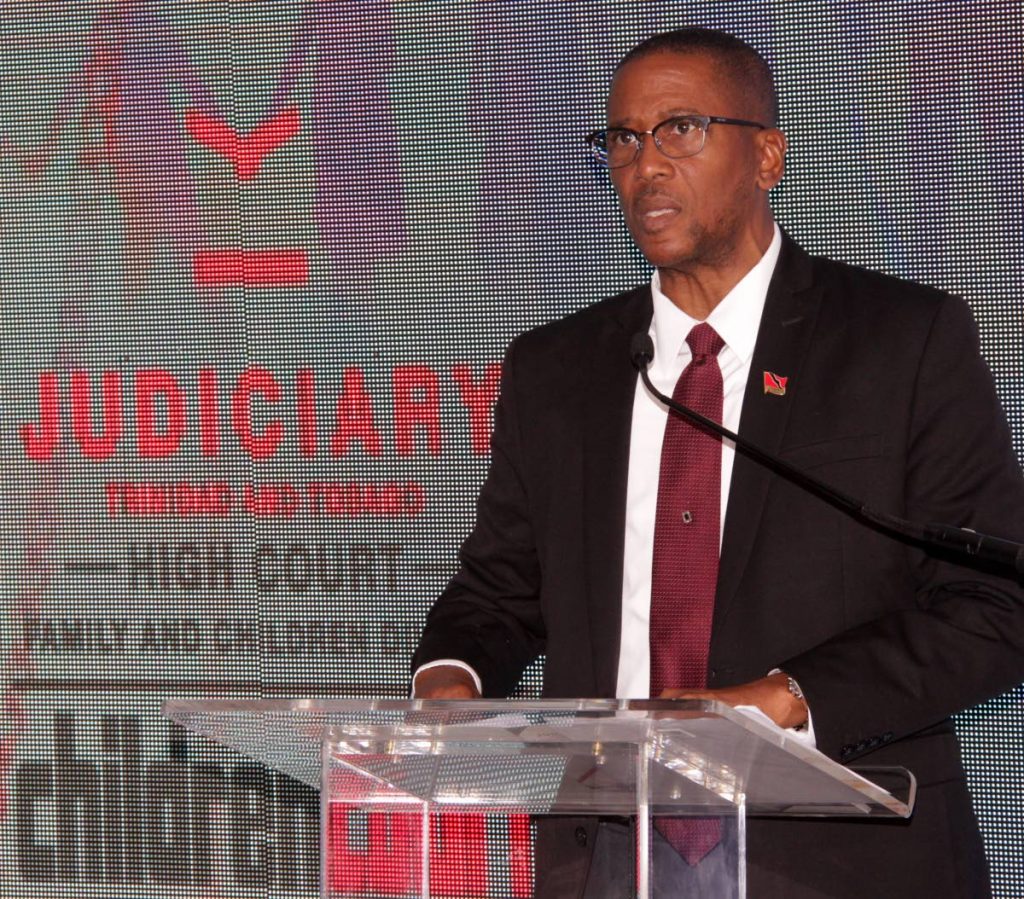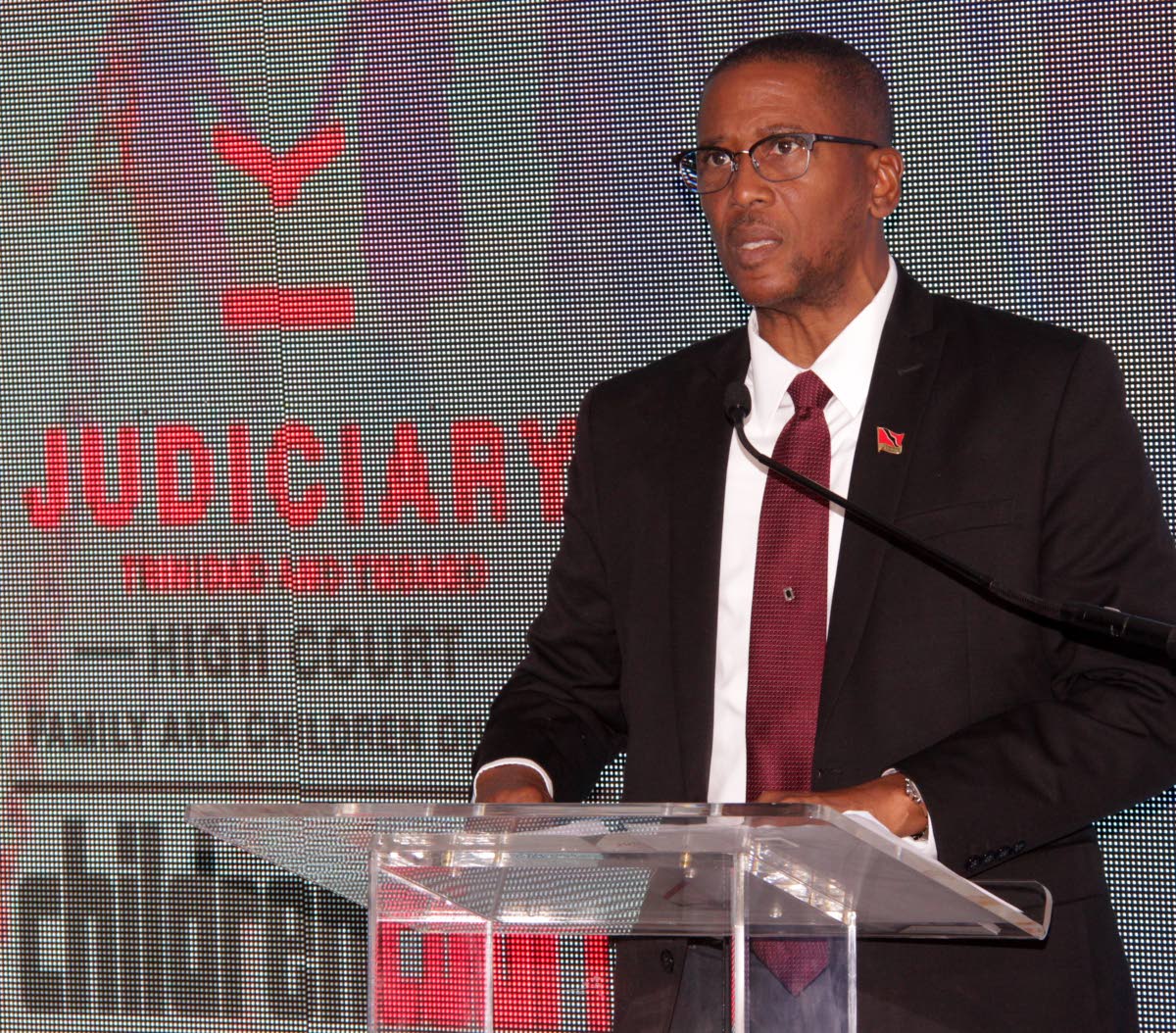Six months for Archie

CHIEF Justice Ivor Archie has requested a six-month sabbatical to “step back a bit from the onerous demand” of his position and to “rest, reflect and undertake a programme of study,” in Washington, DC.
He is expected to go from Sunday to August 31.
In his application for the extended leave in November, Archie reminded President Anthony Carmona of the recommendations of the Salaries Review Commission’s 98th Report of 2013 that officers in the higher judiciary should be eligible for a maximum six-month sabbatical leave after a minimum of seven years’ continuous service.
In January, he completed ten years of service as Chief Justice.
Archie’s leave comes at a time when his conduct in office is being questioned by the Law Association. He has successfully shut down the association from presenting a report compiled by an internal investigative team and the advice of two external advisers to its membership at a special meeting on March 15.
Newsday reported in December on the CJ’s proposal to take extended leave from this month.
Already questions have been raised by lawyers on the status of any outstanding judgements Archie may have, given that he will be away for six months.
And judges of the Supreme Court have also questioned the granting of sabbatical leave to the CJ. In an exchange of e-mails, at least two judges have questioned whether the SRC’s recommendation has been finalised and was now policy for all judges.
In the exchange of e-mails, Justice Carol Gobin asked on February 19 about the position regarding the policy for judges to access/apply for and consideration given for sabbatical leave.
“I do recall that soon after the SRC approved the item, a committee was appointed and I seem to remember that a draft or some policy document was circulated.
“May I please have any information or update as to where this has reached?”
On the same day, Justice Ricky Rahim wrote in the e-mail forum that the committee consisted of then Justice of Appeal Paula-Mae Weekes (now President-elect), Justice Hayden St Clair-Douglas and himself.
He said a draft was submitted and the committee’s mandate came to an end.
“Since that time, several others have come on board so perhaps it may be prudent to circulate the draft to those who were not among our number at the time. That is it as far as I know. I have no other update.”
Gobin then asked him to resend the draft, noting that “for those of us who are on our last leg here, I think some clear indication of where we have reached on this is required.”
To Archie she put the question, “May I respectfully ask if there has been any development on this issue and perhaps more generally whether sabbatical leave is available to judges at this time.”
On February 23, Justice Frank Seepersad sent to his colleagues a note on the SRC’s 98th report on the issue, saying there was “an agreement in principle.”
He questioned whether the issue had been finalised and adopted as policy as a term and condition available to all judges.
“If so, I would think that those of us who are approaching retirement within the next few years should be given the first option. This was an issue that Weekes JA (as she then was) was particularly vocal about and unfortunately she was not able to proceed on sabbatical before she left us. Such a circumstance should not be allowed to repeat itself.”
He said he looked forward to the finalisation of the relevant policy.
In his application for leave to the President, Archie said, “I have now come to the place where I wish to step back a bit from the onerous demands of my position and to rest, reflect and undertake a programme of study that will have important implications for the jurisprudence of Trinidad and Tobago as well as other Caribbean states.
“Academic writing in the particular area of study that I propose to undertake is almost non-existent.”
His proposed research project will be based on how labour law in the Commonwealth Caribbean has developed differently from that of other jurisdictions, given the region’s unique legislation and constitutional framework.
He named as his potential outside supervisors and collaborators on the project Industrial Court president Deborah Thomas-Felix, dean of the Faculty of Law at the University of the West Indies’ Mona campus Dr Leighton Jackson and the Federal Judicial Centre (FJC) in Washington, where he will take up the fellowship.
Archie has already been accepted by the FJC’s director, Judge Jeremy Fogel.
He told the President he considered the offer extended to him an excellent opportunity to strengthen existing relationships with the centre as well as contributing to personal and institutional growth.
Archie said he was expected back from the fellowship in time for the opening of the 2018/2019 law term in September and has recommended Justice of Appeal Allan Mendonca to act as Chief Justice in his absence.
President’s House yesterday confirmed that the application for leave asked for by the CJ was granted, and was awaiting certain documentation before Mendonca’s acting appointment can be confirmed.
Weekes is scheduled to be sworn in as President on March 19, a function usually carried out by the Chief Justice.


Comments
"Six months for Archie"